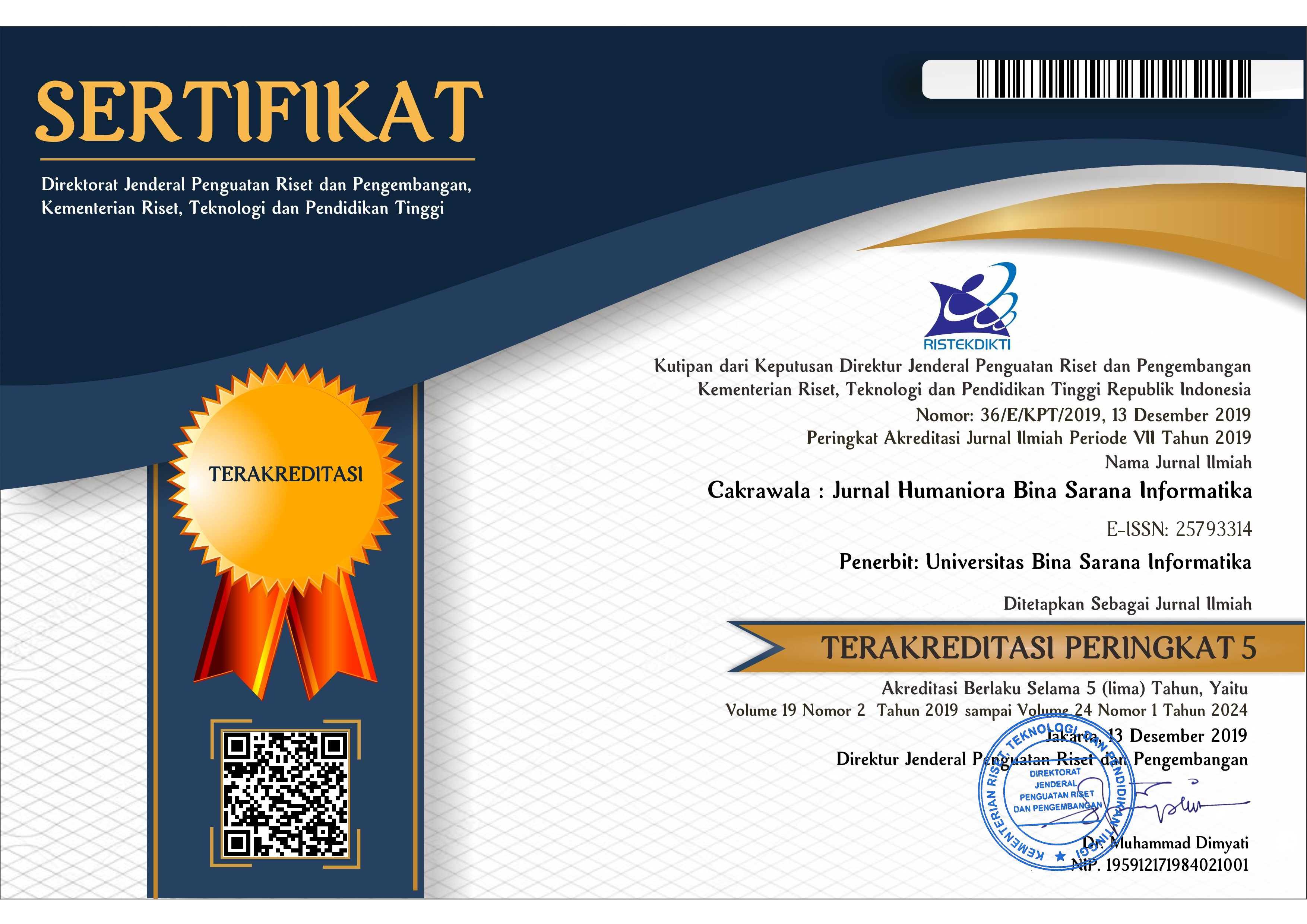Respon Masyarakat terhadap Fenomena "Childfree" (Studi Kasus influencer Gita Savitri)
Abstract
This study aims to describe the public's response to the Childfree phenomenon which has recently become a trend due to influencer Gita Savitri's comments. Childfree itself is used for someone who does not want to have children. This lifestyle is inversely proportional to the pattern that occurs in Indonesia. Where religious and customary factors in Indonesia strongly recommend having children even if only one. This study used a qualitative approach with phenomenological type. The results obtained that the community provides responses in the form of cognitive, affective and behavioral which are divided into two perspectives, namely socio-cultural and religious perspectives. The response of society when viewed from a socio-cultural perspective that the status and existence of women in the past was seen from how many children she could bear children, and the pattern that occurred in Indonesia for married couples to have children even if only one. Then if viewed from a religious perspective that having offspring is a recommendation in Islam is not an obligation. So that childfree is not included in the category of prohibited acts, because every married couple has the right to plan and manage their home life including having children.
Keywords: Phenomenon, childfree, Community response
Full Text:
PDFReferences
Bening, S. (2021). Selain Gita Savitri, Ini 6 Public Figure yang Memutuskan untuk Childfree. https://www.parapuan.co/read/532874233/selain-gita-savitri-ini-6-public-figure-yang-memutuskan-untuk-childfree
Blackstone, A. (2019). Childfree by Choice: the Movement Redefining Family and Creating a New Age of Independence. JOUR. https://www.researchgate.net/publication/346026464_Childfree_by_Choice_the_Movement_Redefining_Family_and_Creating_a_New_Age_of_Independence
Chrastil, R. (2019). How to Be Childless: A History and Philosophy of Life Without Children. Oxford University Press. https://doi.org/https://doi.org/10.1093/oso/9780190918620.001.0001
Corbett. (2018). Other than Mother: The Impact of Voluntary Childlessness on Meaning in Life, and the Potential for Positive Childfree Living. International Journal of Existential Psychology and Psychotherapy,.
Dadan, S. (2019). Representasi Perubahan Sosial Dalam Desain Kaus Oblong Banyumasan. Sosiohumaniora, 21(1), 83. https://doi.org/10.24198/sosiohumaniora.v21i1.14602
Dawud, A. (2019). Buku Fenomenologi Maraimbang-PDF (Issue February).
Delyser. (2012). At Midlife, Intentionally Childfree Women and Their Experiences of Regret. Clinical Social Work Journal,. 40, 1. https://doi.org/https://doi.org/10.1007/s10615- 011-0337-2
Fatonah, N. (2021). Fenomena Childfree, Tuai Pro dan Kontra dalam Masyarakat. Kompasiana.Com. https://www.kompasiana.com/nurulfatonah8586/6175cda9dfa97e4b69765672/fenomena-childfree-tuai-pro-dan-kontra-dalam masyarakat?page=3&page_images=1#google_vignette
Frejka, T. (2017). Childlessness in the United States. Demographic Research Monographs, November 2016, 159–179. https://doi.org/10.1007/978-3-319-44667-7_8
Gustina, S. (2023). Childfree Pilihan Pribadi Pasangan, Begini Kata Psikolog Klinis. https://www.tvonenews.com/daerah/sumatera/101473-childfree-pilihan-pribadi-pasangan-begini-kata-psikolog-klinis?page=all
Hanandita, T. (2022). Konstruksi Masyarakat Tentang Hidup Tanpa Anak Setelah Menikah. Jurnal Analisa Sosiologi, 11(1), 126–136. https://doi.org/10.20961/jas.v11i1.56920
Khasanah, U., & Ridho, M. R. (2021). Childfree Perspektif Hak Reproduksi Perempuan Dalam Islam. Al-Syakhsiyyah: Journal of Law & Family Studies, 3(2), 104–128. https://doi.org/10.21154/syakhsiyyah.v3i2.3454
Muhammad Hanif. (2021). Mengenal Konsep Child-free: Menikah Tapi Tak Ingin Punya Anak. https://www.gooddoctor.co.id/hidup-sehat/info-sehat/mengenal-konsep-child-free-menikah-tapi-tak-ingin-punya-anak/
Patnani, M., Takwin, B., & Mansoer, W. W. (2021). Bahagia tanpa anak? Arti penting anak bagi involuntary childless. Jurnal Ilmiah Psikologi Terapan, 9(1), 117. https://doi.org/10.22219/jipt.v9i1.14260
Rakhmat, J. (2018). Psikologi Komunikasi : Edisi Revisi. Simbiosa Rekatama Media.
Rosyidah, T., & Listyaningsih, L. (2019). Respon Masyarakat Desa Racitengah tentang Peraturan yang Mewajibkan Penggunaan Hijab di SMA Negeri 1 Sidayu Gresik. Kajian Moral Dan Kewarganegaraan, 7(2), 1375–1390.
Stobert, S., & Kemeny, A. (2003). Childfree by choice Childfree by choice. Canadian Social Trends, 69(91), 7–11. http://0-search.ebscohost.com.aupac.lib.athabascau.ca/login.aspx?direct=true&AuthType=url,ip,uid&db=a9h&AN=10104919&site=ehost-live
Tunggono, V. (2021). Childfree and Happy. Buku Mojok Group.
DOI: https://doi.org/10.31294/jc.v23i1.15716
ISSN: 2579-3314


Dipublikasikan oleh LPPM Universitas Bina Sarana Informatika
Jl. Kramat Raya No.98, Kwitang, Kec. Senen, Kota Jakarta Pusat, DKI Jakarta 10450

This work is licensed under a Creative Commons Attribution-ShareAlike 4.0 International License









